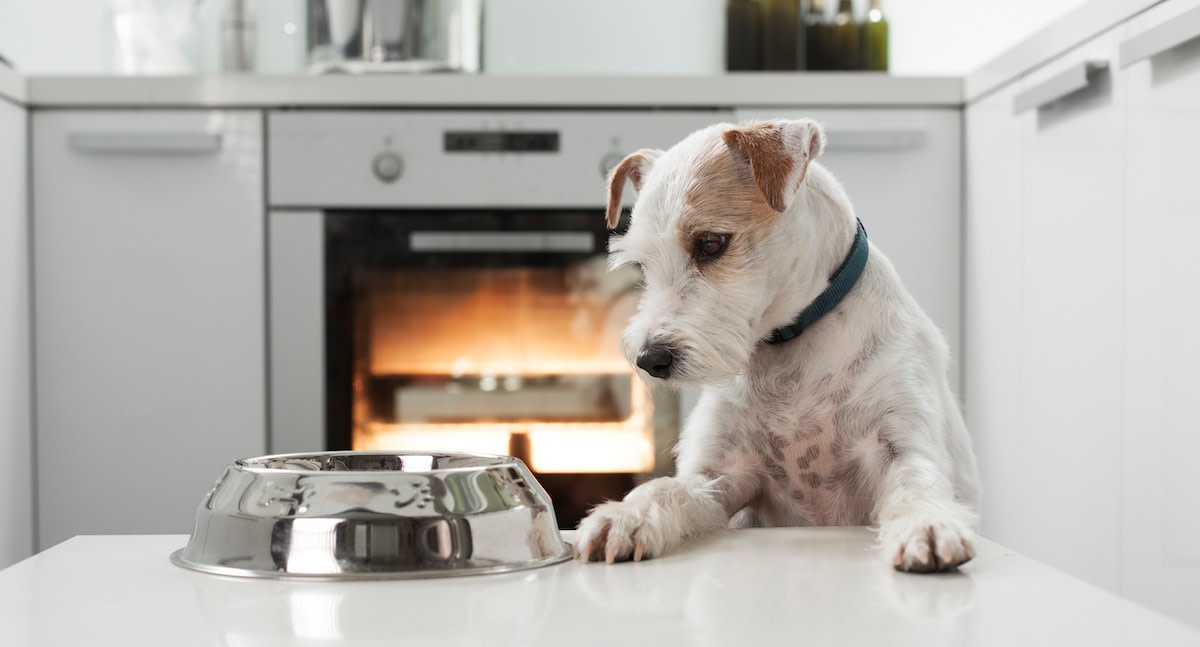Can Dogs Eat Beans? Types of Beans That Dogs Can Eat
Written by MasterClass
Last updated: Aug 3, 2022 • 4 min read
Pet owners wondering if dogs can eat beans will be happy to know that they can safely consume these healthy legumes, so long as they are cooked. Beans have high fiber content, so they won’t cause your dog’s blood sugar to spike. However, consuming too many beans can make your dog gassy, and some varieties can be toxic to canines. Learn the ins and outs of feeding beans to dogs.
Learn From the Best
Are Beans Safe for Dogs?
Dogs are omnivores, so they can generally consume various beans as part of a healthy diet, but there are a few types to avoid. Beans are high in fiber and contain essential nutrients like vitamin A, vitamin C, vitamin K, manganese, and protein. Avoid feeding your dog beans too frequently to prevent flatulence and constipation, and never feed them uncooked beans because most contain a compound called phytohemagglutinin, which is toxic to dogs.
As with any new food, dog owners should slowly introduce cooked beans to their canine’s diet by adding a little bit to their kibble or serving it as a healthy treat.
9 Types of Beans That Dogs Can Eat
Many types of beans are safe for most dogs. Avoid salt and spices commonly added to human foods; too much seasoning can harm dogs. Try cooking a small amount of these bean varieties for your dog:
- 1. Black beans: Dry black beans are widely available, and they can be a healthy part of your dog’s diet when cooked simply.
- 2. Butter beans: Also known as lima beans, you can find these large beans dried or frozen. (Frozen butter beans are bright green, while dried ones are white.) Frozen lima beans are typically precooked, making them an easy addition to homemade dog food.
- 3. Green beans: Green beans are the only type your dog can consume raw, but you can also steam them. Avoid cooking green beans in oil, since too much fat can upset your dog’s stomach.
- 4. Kidney beans: While raw kidney beans can be hazardous to dogs, cooked kidney beans are a healthy option.
- 5. Garbanzo beans: Also known as chickpeas, garbanzos are particularly rich in potassium, magnesium, and folate (also known as folic acid), which helps produce new red blood cells. Stay away from processed chickpea-based foods like hummus, which typically contains garlic and other seasonings that can be dangerous for dogs. Here’s how to make hummus safe for your dog to consume.
- 6. Lentils: These small, quick-cooking legumes are safe for dogs to consume in moderation. Split and whole lentils are safe for dogs when fully cooked; split lentils will cook to a more soupy, porridge-like consistency, while whole lentils will keep their shape.
- 7. Navy beans: Most grocery stores carry these small white beans in dried and canned form. Skip the canned beans, which may contain salt and preservatives that are unsafe for dogs, and instead cook the dried navy beans.
- 8. Pinto beans: These creamy brown beans are a staple in Mexican and Tex-Mex cuisine. To prepare pinto beans for your dog, stay away from flavorful seasonings and boil them in water.
- 9. Soybeans: This inexpensive bean is an excellent source of protein, which is why you’ll find it on the ingredients list of many commercial dog foods. Dried soybeans are tan in color, while frozen immature soybeans, known as edamame in Japanese, are bright green.
4 Types of Beans to Avoid Giving Dogs
Despite their potential health benefits, several kinds of beans may not be safe to include in your dog’s diet. Here are the beans to avoid:
- 1. Baked beans, chili beans, and refried beans: There are many reasons not to feed these types of beans to your dog. They often come from a can—which means they have a high salt content—and contain ingredients like garlic and onion, which are toxic to your canine companion. Additionally, the spices can upset your dog’s digestive system.
- 2. Canned beans: Most canned beans contain salt and preservatives that may not be safe for dogs to consume. If you know how to cook dry beans, prepare them sans salt for your dog. To cut down on cooking time, soak the beans in advance.
- 3. Coffee beans: Coffee beans contain caffeine, which is highly toxic to dogs. If you think your dog may have consumed coffee beans or another source of caffeine, call your veterinarian immediately.
- 4. Fresh beans and bean shells: Avoid feeding raw beans or their shells or pods to your dog. Fresh fava beans (also known as broad beans), edamame, and lima beans can all be toxic to dogs, so ensure they are thoroughly cooked before feeding them to your dog. Toss or compost the shells or pods rather than letting your dog chew on them.
Before Sharing With Your Pooch
Certain human foods can cause adverse reactions in canines, so always consult your veterinarian to determine whether it is safe to add these foods to your pet’s diet. This article is for educational and informational purposes and is not a substitute for medical or dietary advice.
Want to Learn More About Training the Goodest Boy or Girl?
Your dream of having a dog who understands words like “sit,” “stay,” “down,” and—crucially— “no” is just a MasterClass Annual Membership away. The only things you’ll need to train up a well-behaved pup are your laptop, a big bag of treats, and our exclusive instructional videos from superstar animal trainer Brandon McMillan.
